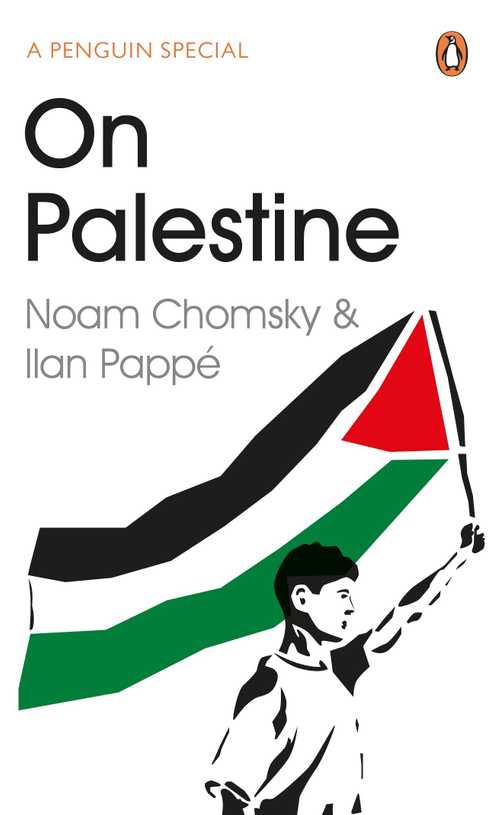On Palestine
Noam Chomsky & Ilan Pappé
August 31, 2020
On Palestine - published in 2015, is a sequel to their first book on the topic Gaza in Crisis. It is a straightforward, comprehensive update on the struggle to liberate Palestine. Ilan Pappé and Noam Chomsky discuss the past, present and future of Palestine and Israel within the overall framework of settler colonialism, drawing comparisons between the South African apartheid and the situation in Gaza and the West Bank.
Noam Chomsky: father of modern linguistics, philosopher, cognitive scientist, historian, professor, activist and author of over 100 books. Ilan Pappé: expatriate Israeli historian and social activist. Two outstanding intellectuals with a common goal - to fight the oppressive regime of Israel and in doing so, liberate Palestine. Both academics are Jewish, and both view the conflict as a direct example of modern day colonialism. The book was edited and produced by Frank Barat: coordinator of the Russell Tribunal on Palestine and human rights activist. Barat uses a more unusual format throughout the book, compiling a collection of essays, speeches and interviews by and between both authors. The structure is effective in parts, especially where the flow of dialogue allows for expansion on certain points that may otherwise have gone unquestioned. However, the use of essays/speeches previously published inevitably leads to some considerable overlap and repetition. It would also have benefitted from a map in the introduction, for readers less familiar to the cause.
The first section - The Old and New Conversations written by Pappé, is a concise insight into the conflict and his own position within it. He frames the creation of Israel and the massive displacement of indigenous Palestinian people as an act of cruel colonisation, as formative and formidable as the carving up of Africa or the genocidal ‘creation’ of America. He writes:
“The last paradox is that the tale of Palestine from the beginning until today is a simple story of colonialism and dispossession, yet the world treats it as a multifaceted and complex story - hard to understand and even harder to solve. Indeed, the story of Palestine has been told before: European settlers coming to a foreign land, settling there, and either committing genocide against or expelling the indigenous people. The Zionists have not invented anything new in this respect. But Israel succeeded nonetheless, with the help of its allies everywhere, in building a multilayered explanation that is so complex that only Israel can understand it. Any interference from the outside world is immediately castigated as naive at best or anti-Semitic at worst.”
He goes on to discuss the effect of the conflict on refugees - both Palestinian and more recently Syrian, and the position of the west as complicit in both its silence and its support of Israeli policies present and past. He considers it the duty of academics to strengthen research and fight ideology at home and in the West in order to influence the media and raise awareness. He passionately reiterates Edward Said’s call for Permission to Narrate, in which Said asserted that
“The actual balance of political, economic, and military powers [do] not mean […] that the disempowered [do] not possess the ability to struggle over the production of knowledge.”
The second section - Dialogues, was for me the most robust and interesting part of this shorter read. Barat has skillfully devised questions to guide a fascinating conversation between his two speakers, and as someone who is not an expert in the conflict I found this method most informative. They cover topics such as Zionism inside and outside Judaism, framing colonialist actions in semiotics across Hebrew and English, the formation of Israel after the Holocaust and the power of cause and effect. They cover the western reaction to the aftermath of the Holocaust, pausing to reflect on the inaction of both Europe and America in stepping in to make sustainable choices for the survivors -
“Simple question. How many of them came to the United States? Virtually none. If you had asked them where they wanted to do, I think you can make a sane guess that they would have wanted to come to the United States. Half of Europe wanted to come, especially Holocaust survivors. They did not. They American government did not want them, the American Jewish community did not want them. Zionist emissaries took over the camps. They had a principle that able-bodied men and women between seventeen and thirty-five had to be shipped off to Palestine.”
Overall, the book is an enlightening read and an excellent stepping stone to do further research into the Palestine-Israeli conflict. One to be read with the authors’ own bias in mind - as with any political read.
